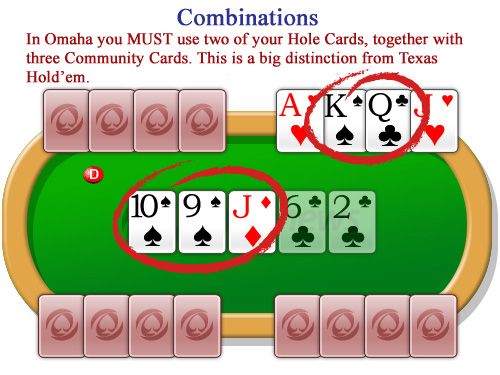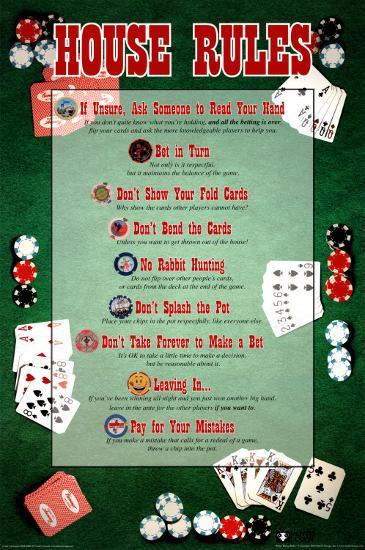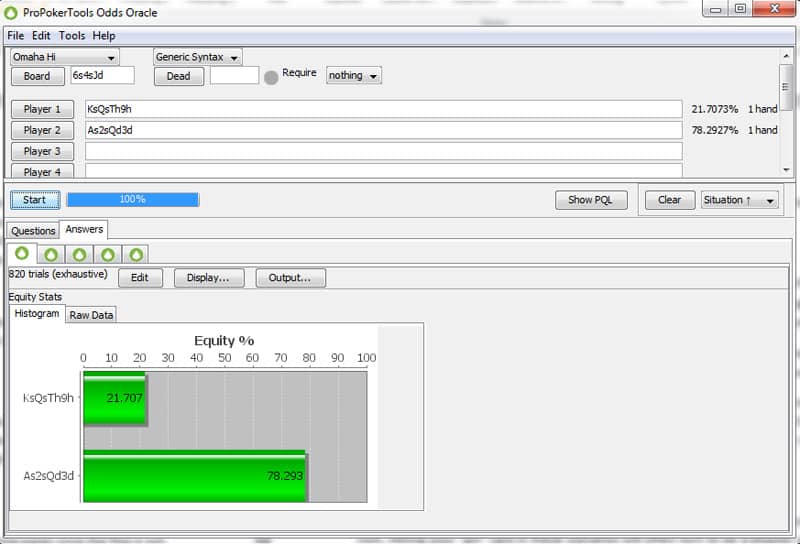Rules Poker Omaha
- Rules Poker Omaha Nebraska
- Rules Of Poker Omaha
- Rules For Playing Omaha Poker
- Omaha Poker Rules And Regulations
- Rules Poker Omaha Poker
- Rules Poker Omaha Entertainment
Omaha is an exciting poker variant, and although it bears a striking similarity to Texas Hold’em, it stands in a class of its own.
Omaha Poker is the second most popular variant of poker played, after Texas Hold ‘Em. It is very similar to Hold ‘Em in that it is a community-card game. If you know how to play Texas Hold ‘Em, these instructions should be familiar. The Basic Rules of Pot Limit Omaha (PLO) Omaha is a poker variant in which each player is dealt four “hole” cards (cards that the other players can’t see) and then share a five card board. It is similar to Hold’em in its play, with flop, turn, and river cards dealt in succession on the board, interspersed with betting rounds.
Once poker players have understood the basic rules of playing Omaha Poker and played a few games for real money, they would want to know the secrets of playing a winning game of Omaha Poker.
Here are 10 tricks to winning at Omaha Poker.
Rules Poker Omaha Nebraska

O8 Poker is dedicated to Omaha Hi/Lo 8 or better, giving rules and advice, offering a personal coaching service, and providing brief reviews of some sites where it can be played online.

- Know the Rules Omaha players will naturally be disappointed when the read the first secret to playing a winning game of Omaha Poker – know the rules. However, they must understand that it is literally impossible to understand any Omaha Poker strategy until and unless they have thoroughly understood the rules of Omaha Poker at the deepest level.
- Mark the DifferenceMany beginners play a miserable game of Omaha Poker because they do not realize the difference between Hold’em and Omaha. Players of Omaha have to create a strong five-card hand using two hole cards and three community cards, and this is what makes Omaha Poker more challenging than Texas Hold’em.
- Choosing Best Starting HandsA standard deck of 52 playing cards can be used to create 5,277 combinations, provided only four cards are used and suited combinations are not considered. Successful Omaha players understand these combinations very well.
- All Four Cards Are ImportantWhile it is true that players can use only two of their hole cards to create the strongest hand, they must carefully study all the four cards in their starting hand. Thinking of the various combinations that can be created with these four cards will help players understand better their odds of winning.
- Ace Pair Having a pair of Aces in one’s starting hands is something to be happy about. For instance, if players are dealt an Ace of Spades, an Ace of Diamonds, a King of Spades, and a King of Diamonds, they will do very well on the flop. An excellent Omaha Poker strategy would be to play a starting hand with an Ace pair.
Learn the basic Omaha Poker Rules
This video has been provided by online-casinos.com
- Aces Are Not Everything Simultaneously, an ace is not everything and it definitely does not promise the jackpot. While having an Ace in the starting hand is always beneficial, a lot depends on the other cards in the hand. Even if players get an Ace pair, if they have cards such as Five of Clubs and Nine of Hearts with their Ace pair, they will not be able to win. However, if the opponent does not have an Ace in his/her starting hand, the above-mentioned hand can be played. A list of great starting hands with Ace pairs would include AAQQ, AA99, and AAJJ, to mention just a few.
- Kings and Queens Omaha players who are dealt Kings and Queens in their starting hands can also play their hands, provided they have another strong pair. For instance, a King of Diamonds, a King of Spades, a Queen of Diamonds, and a Queen of Spades comprises a great starting hand, but a King of Diamonds, a King of Spades, a Nine of Spades, and a Nine if Diamonds is not really a good hand to play. Players can consider playing starting hands with pairs of cards, suited connectors, flushes, and connectors.
- The Best Can Be the Worst Sometimes players might receive cards that look excellent, but have absolutely no potential of winning. For instance, beginners will jump for joy if they get four cards from the same suit or a three of a kind, but such hands are useless to Omaha players because they can use only two of their hole cards and 3 community cards to create a winning hand. Such hands are, therefore, better folded.
- Identify Worthless Hands Omaha players must understand that they cannot play all starting hands. If they get dealt a hand that has no potential of becoming a winner, they had better fold. Players must learn the art of distinguishing worthless hands from valuable starting hands.
- Best Omaha Starting Hand The best Omaha starting hand can, therefore, be defined as a hand comprising four great cards that can work collaboratively to create a strong poker hand for the player. Players should look for card pairs, complimentary cards, suited cards, connected cards, and even a pair of deuces.
OBJECTIVE OF OMAHA POKER: The objective of poker is to win all the money in the pot, which consists of bets made by players during the hand. Highest hand wins the pot.
NUMBER OF PLAYERS: 2-10 players
NUMBER OF CARDS: 52-card decks
RANK OF CARDS: A,K,Q,J,10,9,8,7,6,5,4,3,2

TYPE OF GAME: Casino

AUDIENCE: Adult
INTRODUCTION OMAHA POKER
Omaha Poker is the second most popular variant of poker played, after Texas Hold ‘Em. It is very similar to Hold ‘Em in that it is a community-card game. If you know how to play Texas Hold ‘Em, these instructions should be familiar. If you would like to learn how to play Texas Hold ‘Em, click here.The main difference between Omaha Poker and Hold’Em is that players are dealt four (as opposed to two) cards in Omaha and they must use at least two of those to form their hand.
Omaha poker typically is played without an ante but there are blinds. These, like an ante, are forced bets. There are usually two: a small blind and a big blind. The player left to the dealer pays the small blind, and the player to their left pays the big blind.
Omaha Poker is overwhelmingly played with a pot limit, often abbreviated as PLO.
THE DEAL & THE PLAY
Draw for Dealer
To pick a dealer, pass out a single card, face-up, to each player. The player with the highest card deals first. Aces are the highest card. In the event of a tie, suits are used to determine high card. Spades are the highest ranking suit, followed by hearts, diamonds, and clubs. This is the North American standard. The player who becomes dealer often puts out the white dealer button, however, this is optional. The dealer shuffles the cards and prepares for the first deal.
Put Out the Blinds & Deal
Before the dealer passes out the cards, the two players left of the dealer must put out the blinds. The player immediately left of the dealer puts out the small blind while the player to their left puts out the big blind.
Once the blinds are put out, the dealer begins passing out cards. Starting with the player directly to their left and moving clockwise, the dealer hands each player four cards, one at a time, face-down.
Preflop
After all the cards have been dealt, the first round of betting begins. This round is called the “preflop.” The betting ends when
- Every player has had the opportunity to act
- Players who have not folded all bet the same amount
Starting with the player to the left of the big blind, betting begins. There are three ways a player can act:
Fold, pay nothing and forfeit the hand.
Call, place a bet that matches the big blind or previous bet.
Raise, place a bet at least double of the big blind.
Play moves clockwise from the big blind.
The amount to call or raise is dependent on the last bet placed before it. For example, after the big blind a player decided to raise. The next player to act must bet the big blind + raise in order to call.
The big blind is last to act before the flop.

The Flop & Betting Round
The flop is dealt after the first round of betting. In community-card poker like Omaha, five cards are dealt to the table – the flop is the first three cards.
The dealer burns the card at the top of the deck (discards it) and proceeds to deal three cards face-up on the table.
Once the flop has been dealt betting begins with the player directly to the dealers left with a hand. The first player to bet may check or bet. Bets during the flop round are typically equal to the big blind.
Play moves left, players may check (if there was no previous bet), call, or raise.
Rules Of Poker Omaha
The Turn & Betting Round
After the previous betting round concludes, the dealer deals the turn. This is one more card, face-up, added to the table. Before the dealer deals the turn, the deal burns the top card.
Once the turn is dealt another round of betting ensues. This proceeds much like betting on the flop but uses a higher minimum bet. Typically the betting limit is slightly larger than double the big blind.
The River & Final Round of Betting
Following the turn, the final community card is dealt to the table- the river. The dealer burns a card then places the final card face-up on the table. After the river is dealt, the final round of betting begins. Betting on the river is identical to betting on the turn.
The Showdown
Of the players remaining, the one with the best hand wins and takes the pot.
Omaha poker uses traditional Poker Hand Rankings. Using at least two cards from the hand dealt to you by the dealer and up to three community cards, make the best hand possible.
Example:
Board: J, Q, K, 9, 3
Player 1: 10, 9, 4, 2, A
Player 2: 10, 4, 6, 8, J
Player 1 has a straight using two cards in their hand (9,10) and three community cards (J, Q, K), for 9, 10, J, Q, K
Player 2 has a pair. J, J, 8, 6, 10
Player 1 wins the hand and the pot!
VARIATIONS
Omaha Hi/Lo
Omaha high-low is often played so that the pot is split between the players with the highest hand and the lowest hand. Low hands typically must have an 8 or lower to qualify (Omaha/8 or Omaha 8 or better).
Five-card Omaha
Played identically to traditional Omaha but players are dealt five cards secretly.
Six-card Omaha (Big O)
Rules For Playing Omaha Poker
Also played just like traditional Omaha except that players are dealt six cards privately.
Omaha Poker Rules And Regulations
REFERENCES:
https://en.wikipedia.org/wiki/Blind_(poker)
Rules Poker Omaha Poker
http://www.pokerlistings.com/omaha-poker-betting-rules
Rules Poker Omaha Entertainment
https://www.pagat.com/poker/variants/omaha.html